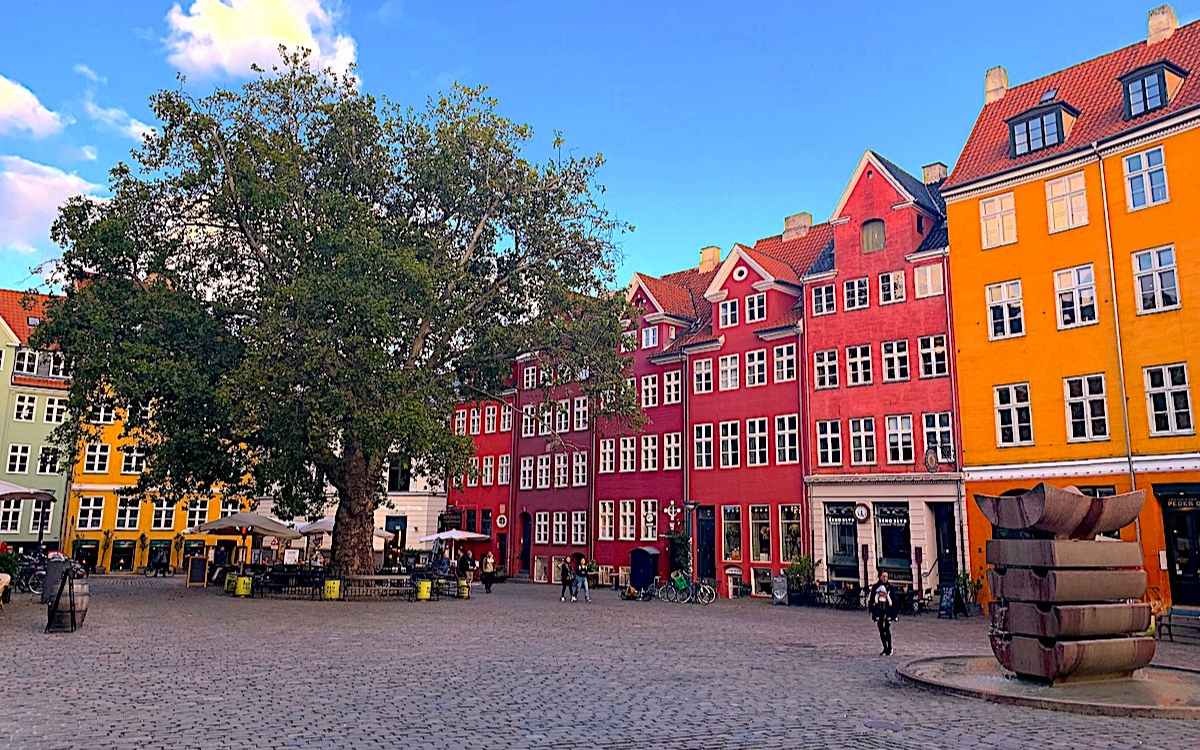Choosing The Best Fixed Rate Mortgage In Europe For Your Home
When embarking on the journey of purchasing a home, one of the most critical financial decisions you will make is choosing the right mortgage. Fixed rate mortgages in Europeoffer a sense of security and predictability that can be very appealing to homebuyers. But what exactly are fixed rate mortgages, and how do they stack up against their variable rate counterparts?
A fixed rate mortgage is a loan for purchasing a property where the interest rate remains the same throughout the term of the loan. This means that your monthly repayments are consistent, unaffected by fluctuations in the market interest rates. Typically, these mortgages are offered over terms of 10, 15, 20, or even 30 years, providing long-term stability for your financial planning.
Comparison With Variable Rate Mortgages
In contrast, variable rate mortgages have interest rates that can change based on the market conditions. This means that while you might benefit from lower payments when interest rates are low, you also face the risk of increased payments if rates rise. The unpredictability of variable rates can be a source of anxiety for some homeowners, especially when budgeting for the future.
Advantages For Homebuyers
Fixed rate mortgages come with several advantages that make them a popular choice among European homebuyers:
- Predictability: Knowing exactly what your mortgage repayments will be for the duration of the loan term makes it easier to manage your household budget.
- Protection from rate increases: If interest rates rise, your repayments stay the same, protecting you from the added expense that variable rate mortgage holders might incur.
- Simplicity: With a fixed rate, there's no need to constantly monitor interest rates or predict market trends, making financial planning more straightforward.
For many, the stability that a fixed rate mortgage provides is invaluable, particularly in times of economic uncertainty. It allows homebuyers to lock in a rate they are comfortable with, without worrying about future market volatility.
How Homebuyers Are Affected By Interest Rate Changes
Interest rates are a critical factor in the world of home financing, and they can have a profound impact on the monthly repayments of a mortgage. For those considering a fixed rate mortgage, understanding how interest rate changes can affect their financial situation is essential.
The Effect Of Rising Interest Rates On Mortgage Repayments
When interest rates rise, the cost of borrowing money increases. For homebuyers with variable rate mortgages, this means that their monthly repayments can go up, sometimes significantly. However, those who have opted for a fixed rate mortgage are protected from these fluctuations during the term of their fixed rate. Their repayments remain the same, providing a sense of security and predictability in their budgeting.
But it's not just the monthly repayments that are affected. The overall cost of the loan can increase with higher interest rates, meaning that homebuyers will pay more over the life of the mortgage. This is particularly important for those who are at the edge of their affordability threshold, as even a small increase in rates can push their finances over the limit.
Strategies For Homebuyers To Mitigate Risks
To mitigate the risks associated with interest rate changes, homebuyers can employ several strategies:
- Locking in a Fixed Rate: By choosing a fixed rate mortgage, homebuyers can lock in the current interest rate for a set period, protecting themselves from future increases.
- Overpaying on the Mortgage: When possible, making overpayments can reduce the mortgage balance faster and save on interest costs in the long run.
- Refinancing: If interest rates drop, refinancing to a lower rate can reduce monthly repayments and the total cost of the loan.
- Fixed-Rate Period Selection: Opting for a longer fixed-rate period can provide stability for a more extended time, although this often comes with a slightly higher initial rate.
Importance Of Financial Planning And Budgeting
Financial planning and budgeting are crucial for homebuyers, especially in a fluctuating interest rate environment. By understanding their financial situation and preparing for potential changes, homebuyers can make informed decisions that align with their long-term goals.
Creating a budget that accounts for possible increases in mortgage repayments can help ensure that homebuyers are not caught off guard. It's also wise to have an emergency fund in place to cover unexpected expenses or to compensate for periods when interest rates might rise.
Case Studies - Fixed Rate Mortgages In Specific European Countries
When considering a fixed rate mortgage in Europe, the landscape varies significantly from one country to another. Each nation's housing market, economic stability, and banking regulations shape the mortgage deals available to homebuyers. Let's delve into some specific European countries to understand how fixed rate mortgages operate within their unique contexts.
France, Germany, And The Netherlands - A Model Of Stability
Franceis known for its relatively stable housing market, and fixed rate mortgages are the norm here. French banks offer long-term fixed rate mortgages, often extending up to 20 or 25 years. The stability of these mortgages is attractive to homebuyers, as they provide a predictable repayment plan that is not subject to the fluctuations of the market.
In Germany, fixed rate mortgages are also popular, with terms typically ranging from 5 to 30 years. German borrowers tend to prefer longer-term fixed rates for the security they offer against interest rate volatility. The German market is characterized by conservative lending practices, which has kept the housing market relatively stable.
The Netherlandspresents a similar scenario, where fixed rate mortgages are commonplace. Dutch homebuyers often lock in their interest rates for periods of 10 years or more. The Dutch government also provides tax relief on mortgage interest, which, when combined with fixed rate mortgages, offers a financially attractive proposition for homebuyers.
Challenges Faced By Homebuyers In Greece, Portugal, Spain, And Italy
Contrastingly, Southern Europeancountries like Greece, Portugal, Spain, and Italy have faced more turbulent economic conditions, which have impacted their mortgage markets. In these countries, variable rate mortgages were traditionally more common, but the financial crises and subsequent economic instability have shifted the focus towards fixed rate options.
In Greece, the economic downturn led to a significant drop in property values, making banks wary of lending. Fixed rate mortgages are available but are typically offered with shorter terms and higher interest rates compared to other European countries.
Portugalhas seen a rise in the popularity of fixed rate mortgages as borrowers seek protection from potential interest rate hikes. However, the availability of long-term fixed rate deals is still limited, and the interest rates are often higher than in Northern European countries.
Spainhas experienced a similar shift, with a growing number of Spanish banks now offering fixed rate mortgages as a response to demand from homebuyers looking for stability in their monthly payments. However, the rates are generally higher, reflecting the perceived risk in the Spanish housing market.
In Italy, the economic uncertainty has led to a cautious approach from both lenders and borrowers. Fixed rate mortgages are available, but the market is still dominated by variable rate products. Italian homebuyers opting for fixed rate mortgages often face higher interest rates and stringent lending criteria.
The Situation In Sweden And The UK - Warning Signs For Homebuyers
Swedenhas a unique mortgage market where variable rate mortgages have been the standard. However, in recent years, there has been a gradual increase in the availability of fixed rate mortgages. This shift is partly due to regulatory changes aimed at reducing household debt levels. Swedish homebuyers are now more inclined to consider fixed rate options, although these products may come with higher interest rates.
The UKhas a well-developed mortgage market with a wide range of fixed rate mortgage products available. The typical fixed rate mortgage term in the UK ranges from 2 to 5 years, after which the borrower may switch to a variable rate or remortgage to another fixed rate deal. However, with Brexit and other economic uncertainties, UK homebuyers must be vigilant about potential interest rate changes that could affect their repayments once the fixed term ends.
Future Outlook For Fixed Rate Mortgages In Europe
As we peer into the horizon of the European housing market, the trajectory of fixed rate mortgages remains a topic of keen interest for prospective homebuyers. The financial landscape is ever-changing, and with it, the patterns of interest rates and their subsequent effects on the housing market. Here, we delve into the predictions for interest rate movements, the potential impact on the housing market, and offer advice for those looking to secure a home in Europe.
Predictions For Interest Rate Movements
Economic forecasts play a crucial role in shaping expectations for interest rate trends. Analysts often scrutinise the policies of central banks, such as the European Central Bank (ECB), to predict the direction of rates. In recent times, there has been a tendency towards maintaining low-interest rates to stimulate economic growth. However, this trend is not set in stone.
Inflationary pressures can prompt central banks to consider raising rates to keep the economy in balance. For homebuyers, this means that locking in a fixed rate mortgage now could be beneficial before any potential increases. It's essential to stay informed about economic indicators and forecasts, as they can provide valuable insights into future rate adjustments.
Potential Impact On The Housing Market
Interest rates are a significant factor influencing the housing market. Lower rates tend to make borrowing more affordable, which can increase demand for homes and, consequently, push up property prices. Conversely, if rates rise, the cost of borrowing increases, potentially cooling the market and stabilising prices.
For those eyeing the European housing market, understanding these dynamics is crucial. A fixed rate mortgage can serve as a safeguard against fluctuating interest rates, ensuring that your monthly repayments remain constant regardless of market changes.
Advice For Prospective Homebuyers In The Current Economic Climate
Navigating the property marketcan be daunting, especially with the uncertainty surrounding interest rates. Here are some tips for prospective homebuyers:
- Research is Key: Stay abreast of economic news and understand how it may affect mortgage rates. Knowledge is power when it comes to making informed decisions.
- Consider the Long Term: A fixed rate mortgage offers stability over the agreed period. Think about your long-term financial goals and how a fixed rate can align with them.
- Seek Professional Advice: Mortgage advisors and financial planners can provide tailored advice based on your circumstances and the current economic climate.
- Budget Wisely: Ensure that you can comfortably afford the repayments on a fixed rate mortgage, even if rates were to rise after your fixed term ends.
- Flexibility Matters: Look for mortgage deals that offer some degree of flexibility, such as the ability to make overpayments without penalties. This can help you adapt to changing financial situations.
Fixed Rate Mortgage In Europe - FAQs
What Countries Have A Fixed Rate Mortgage?
- Fixed-rate mortgages are prevalent in the United States, where they are a standard mortgage product.
- Canada also offers fixed-rate mortgages as a common option for homebuyers.
- In the United Kingdom, fixed-rate mortgages are widely available, providing borrowers with the security of a stable interest rate.
Are Mortgage Rates Fixed In Germany?
Germany offers both fixed-rate and variable-rate mortgages. Fixed-rate mortgages are popular among German homebuyers who prefer the predictability and stability of a constant interest rate. Borrowers can choose fixed-rate terms that typically range from 5 to 30 years.
Are Mortgage Rates Fixed In France?
Similar to Germany, France provides homebuyers with the option of both fixed-rate and variable-rate mortgages. Fixed-rate mortgages are commonly chosen by borrowers seeking a steady interest rate throughout the loan term. The fixed-rate periodcan vary, typically ranging from 5 to 30 years.
Can A Health Insurance Card Affect Your Ability To Secure A Mortgage In Europe?
In Europe, the eligibility criteria and requirements for obtaining a mortgage can vary between countries and lenders. Generally, a health insurance card may not directly impact your ability to secure a mortgage. Mortgage approval typically depends on factors such as your creditworthiness, income, employment status, and the value of the property you intend to purchase.
Health insurance cards in European countries, exemplified by resources like EHIC, are typically associated with healthcare coverage and may not be directly linked to the mortgage application process. Lenders are more inclined to concentrate on financial aspects, emphasizing factors such as your ability to make mortgage payments.
However, it's essential to consider that requirements can vary, and some countries may have unique regulations or policies. It's advisable to consult with local financial institutions or mortgage advisors in the specific European country where you are considering applying for a mortgage. They can provide detailed information about the application process, required documentation, and any specific considerations that may apply in that jurisdiction.
Conclusion
The landscape of fixed rate mortgages in Europe is subject to the ebb and flow of economic conditions. While the future cannot be predicted with absolute certainty, by staying informed and prepared, homebuyers can navigate the market with greater confidence. A fixed rate mortgage could be the key to securing not just a house, but a stable and predictable financial future in the ever-evolving European market.





